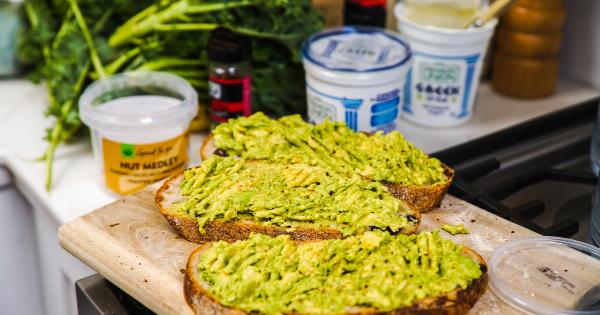Prostate cancer is a major health concern for men worldwide. It is the second most common cancer among men, with an estimated 1.3 million new cases diagnosed annually.
Despite advances in its diagnosis and treatment, the disease still claims more than 350,000 lives every year, making it a leading cause of cancer-related death in men. Research suggests that nutrition plays a vital role in the development and progression of prostate cancer.
What is Prostate Cancer?
Prostate cancer is a type of cancer that develops in the prostate gland, which is a small gland that lies below the bladder in men. The gland produces the fluid that makes up part of the semen.
When cancer cells develop in the prostate gland, they can grow and spread (metastasize) to other parts of the body, such as the bones and lymph nodes. Symptoms of prostate cancer may include difficulty urinating, pain or discomfort during urination, blood in the urine or semen, and erectile dysfunction.
The risk of developing prostate cancer increases with age, and it is more common in men over the age of 50.
How Nutrition Affects Prostate Cancer
There is growing evidence that nutrition plays a crucial role in the development and progression of prostate cancer. Studies have shown that certain dietary factors can increase or decrease the risk of developing the disease.
For example, a diet that is high in saturated fat, red meat, and dairy products has been linked to an increased risk of prostate cancer, while a diet that is rich in fruits, vegetables, whole grains, and fish may reduce the risk. Some nutrients and food components have also been shown to have a protective effect against prostate cancer.
Antioxidants
Antioxidants are substances that protect the cells in the body from damage caused by harmful molecules called free radicals.
Free radicals are produced during normal metabolic processes in the body and can also come from environmental sources such as air pollution and cigarette smoke. Studies have shown that antioxidants, such as vitamin C, vitamin E, and selenium, may help reduce the risk of prostate cancer by neutralizing free radicals and preventing cell damage.
Lycopene
Lycopene is a carotenoid, a type of pigment that gives fruits and vegetables their bright colors.
Tomatoes are the richest source of lycopene, and several studies have shown that men who eat more tomatoes or tomato products have a lower risk of prostate cancer. Lycopene may protect against prostate cancer by reducing inflammation and oxidative damage to the cells.
Green Tea
Green tea is rich in antioxidants called catechins, which have been shown to have anti-cancer properties. Several studies have suggested that drinking green tea may reduce the risk of prostate cancer and slow the progression of the disease.
The catechins in green tea may work by inhibiting the growth of cancer cells and reducing inflammation.
Soy
Soy is a plant-based protein source that is rich in isoflavones, a type of phytoestrogen (plant estrogen) that has been shown to have anti-cancer properties.
Studies have suggested that men who consume more soy products may have a lower risk of prostate cancer. Soy isoflavones may work by inhibiting the growth of cancer cells and reducing inflammation.
Cruciferous Vegetables
Cruciferous vegetables, such as broccoli, cauliflower, and Brussels sprouts, contain compounds called glucosinolates, which are converted to cancer-fighting agents in the body.
Several studies have suggested that men who eat more cruciferous vegetables may have a lower risk of prostate cancer. The cancer-fighting agents in cruciferous vegetables may work by inhibiting the growth of cancer cells and reducing inflammation.
Omega-3 Fatty Acids
Omega-3 fatty acids are a type of polyunsaturated fat that are found in fatty fish, such as salmon, mackerel, and sardines. Several studies have suggested that men who consume more omega-3 fatty acids may have a lower risk of prostate cancer.
Omega-3 fatty acids may protect against prostate cancer by reducing inflammation and inhibiting the growth of cancer cells.
Vitamin D
Vitamin D is a nutrient that is essential for bone health and immune function. Research has also suggested that vitamin D may have anti-cancer properties.
Studies have shown that men with higher levels of vitamin D in their blood may have a lower risk of prostate cancer. Vitamin D may protect against prostate cancer by inhibiting the growth of cancer cells and reducing inflammation.
Zinc
Zinc is a mineral that is essential for immune function and wound healing. Studies have suggested that men with higher levels of zinc in their blood may have a lower risk of prostate cancer.
Zinc may protect against prostate cancer by inhibiting the growth of cancer cells and reducing inflammation.
Conclusion
Nutrition plays a vital role in the development and progression of prostate cancer.
A diet that is high in saturated fat, red meat, and dairy products has been linked to an increased risk of the disease, while a diet that is rich in fruits, vegetables, whole grains, and fish may reduce the risk. Several nutrients and food components, such as antioxidants, lycopene, green tea, soy, cruciferous vegetables, omega-3 fatty acids, vitamin D, and zinc, have been shown to have anti-cancer properties and may help protect against prostate cancer.































